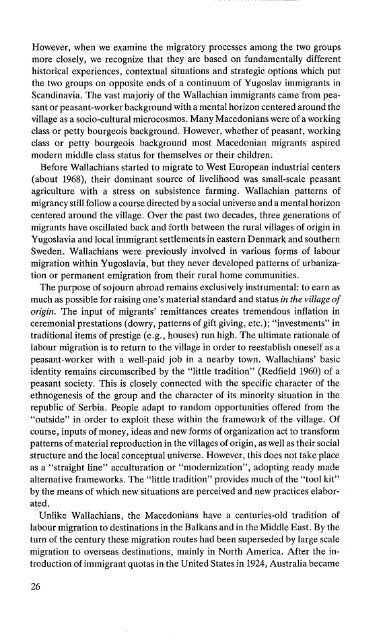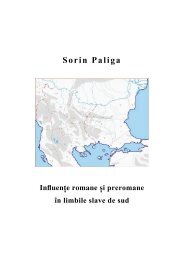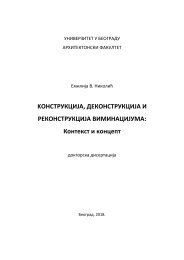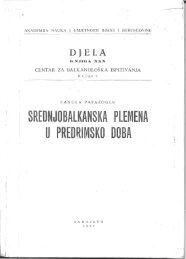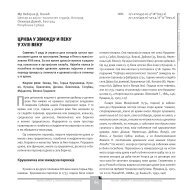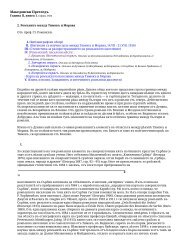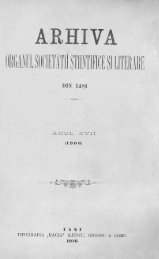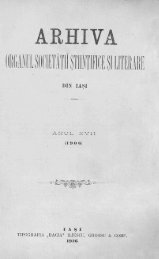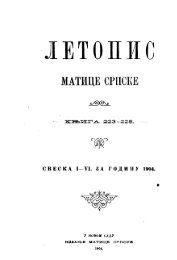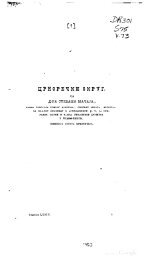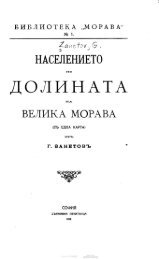Will they still be dancing? (1982)
Etnographic study of Romanians from East Serbia in Sweden in 1980s
Etnographic study of Romanians from East Serbia in Sweden in 1980s
You also want an ePaper? Increase the reach of your titles
YUMPU automatically turns print PDFs into web optimized ePapers that Google loves.
However, when we examine the migratory processes among the two groups<br />
more closely, we recognize that <strong>they</strong> are based on fundamentally different<br />
historical experiences, contextual situations and strategic options which put<br />
the two groups on opposite ends of a continuum of Yugoslav immigrants in<br />
Scandinavia. The vast majoriy of the Wallachian immigrants came from peasant<br />
or peasant-worker background with a mental horizon centered around the<br />
village as a socio-cultural microcosmos. Many Macedonians were of a working<br />
class or petty bourgeois background. However, whether of peasant, working<br />
class or petty bourgeois background most Macedonian migrants aspired<br />
modern middle class status for themselves or their children.<br />
Before Wallachians started to migrate to West European industrial centers<br />
(about 1968), their dominant source of livelihood was small-scale peasant<br />
agriculture with a stress on subsistence farming. Wallachian patterns of<br />
migrancy <strong>still</strong> follow a course directed by a social universe and a mental horizon<br />
centered around the village. Over the past two decades, three generations of<br />
migrants have oscillated back and forth <strong>be</strong>tween the rural villages of origin in<br />
Yugoslavia and local immigrant settlements in eastern Denmark and southern<br />
Sweden. Wallachians were previously involved in various forms of labour<br />
migration within Yugoslavia, but <strong>they</strong> never developed patterns of urbanization<br />
or permanent emigration from their rural home communities.<br />
The purpose of sojourn abroad remains exclusively instrumental: to earn as<br />
much as possible for raising one's material standard and status in the village of<br />
origin. The input of migrants' remittances creates tremendous inflation in<br />
ceremonial prestations (dowry, patterns of gift giving, etc.); "investments" in<br />
traditional items of prestige (e.g., houses) run high. The ultimate rationale of<br />
labour migration is to return to the village in order to reestablish oneself as a<br />
peasant-worker with a well-paid job in a nearby town. Wallachians' basic<br />
identity remains circumscri<strong>be</strong>d by the "little tradition" (Redfield 1960) of a<br />
peasant society. This is closely connected with the specific character of the<br />
ethnogenesis of the group and the character of its minority situation in the<br />
republic of Serbia. People adapt to random opportunities offered from the<br />
"outside" in order to exploit these within the framework of the village. Of<br />
course, inputs ofmoney, ideas and new forms of organization act to transform<br />
patterns of material reproduction in the villages oforigin, as well as their social<br />
structure and the local conceptual universe. However, this does not take place<br />
as a "straight line" acculturation or "modernization", adopting ready made<br />
alternative frameworks. The "little tradition" provides much of the "tool kit"<br />
by the means of which new situations are perceived and new practices elaborated.<br />
Unlike Wallachians, the Macedonians have a centuries-old tradition of<br />
labour migration to destinations in the Balkans and in the Middle East. By the<br />
turn of the century these migration routes had <strong>be</strong>en superseded by large scale<br />
migration to overseas destinations, mainly in North America. After the introduction<br />
ofimmigrant quotas in the United States in 1924, Australia <strong>be</strong>came<br />
26


